I spoke with seven big-league video game composers across the United States and the United Kingdom who work mostly out of their home studios about their craft.
We discussed how advances in technology are changing their ability to work from home, their processes when composing a score, and balancing work from daily life when your daily commute is to the other side of your office.

Sarah Schachner has 10 years of work as a professional composer for TV, film, and video games. She has also been recently collaborating with hip-hop producer Mike Dean, who has produced tracks for Kanye West and Travis Scott.
Her use of string instruments coupled with analog synths for the games Assassin's Creed and Call of Duty: Modern Warfare is regarded as a high-water mark for game composing.
What is the balance between recording at home and recording with orchestras?
A large portion of my scores are produced at my home studio. I don't often bring people into my home, because I play many of the instruments myself: I play, synth, string instruments, violin, viola, cello. I have probably 10 different ethnic string instruments, so I'm often performing the instruments here, except when I’m recording with live orchestra, such as the Nashville Symphony on Call of Duty: Modern Warfare and Anthem. I will either fly there to record in person or do remote sessions, which has worked out great!
How is the workflow with separating work from your home?
It can be tough, when it is in your house you never really get that mental break or separation, and it can take over your whole existence if you're not careful.
I'm pretty disciplined, I have a routine I do in the morning. I start my day and work for most of the day but I take breaks and will go on walks.
The effect of this pandemic on society has been really sad to see, but I feel incredibly lucky to be able to work from home. I guess the silver lining is that with all the usual distractions and societal interactions gone, it's simplified things a bit, which has helped get through such intense deadlines and focus on what really matters.
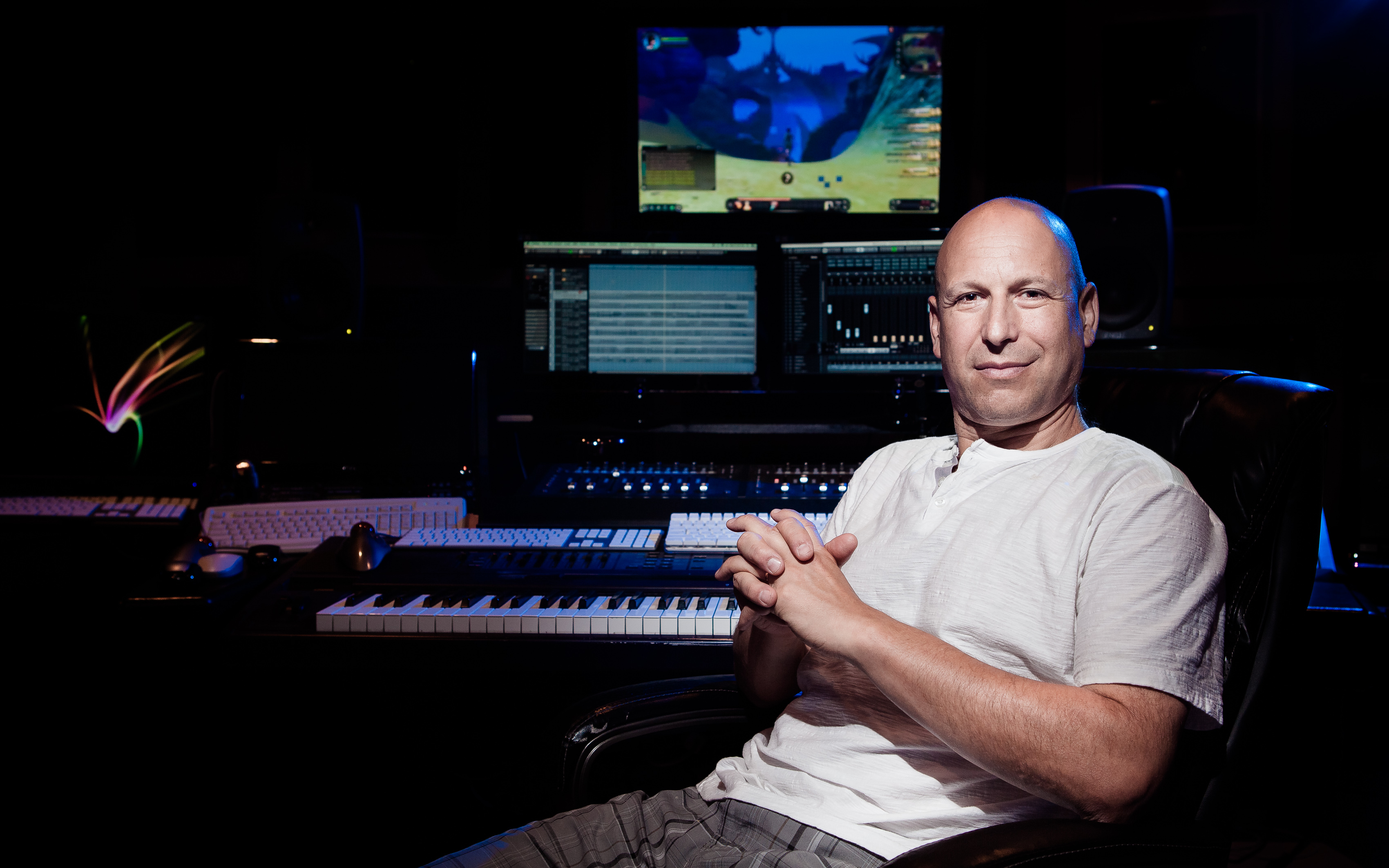
Israeli-American Inon Zur is a prolific and multi award-winning composer, writing scores for over 80 video games, 15 television shows, and 10 films. His recent work composing for The Elder Scrolls: Blades and the Fallout series has received both game-player and critical acclaim.
In 2007, Zur refitted the three-car garage beside his then new home in Los Angeles to create a personal studio with 1,000 square feet of professional recording space, which has recently been upgraded. He is a family man and when composing from home, he has established a discipline of working and not-working hours.
Over the course of your 15-year career composing soundtracks, have you noticed a change in the industry with the advances in technology?
Have I ever. It is a huge deal. Before you had to have a whole laboratory of computers. Composing has gained a lot of advantages because of [technological] developments. Nowadays [when composing], you don't really need to step out of your personal studio.
With the majority of your composing work happening at home, how do you separate living quarters with recording space? Are you always on?
You have to know when to stop, and where to begin. Draw the line between working hours and resting hours. It is a matter of awareness.
Of course, sometimes there are different situations. For example, when an idea is really burning inside you. You're unsatisfied, and you really think that you can do this scene better, and you don't want to go to sleep until it is done. I've been there too.
But on a regular basis for a healthy work flow and habit, you have to really train yourself how to create separate times and rituals, between work and not work. If you're able to do that, then you will be much more focused when you're working and then you can get enough relaxation and recharge when you're not working.
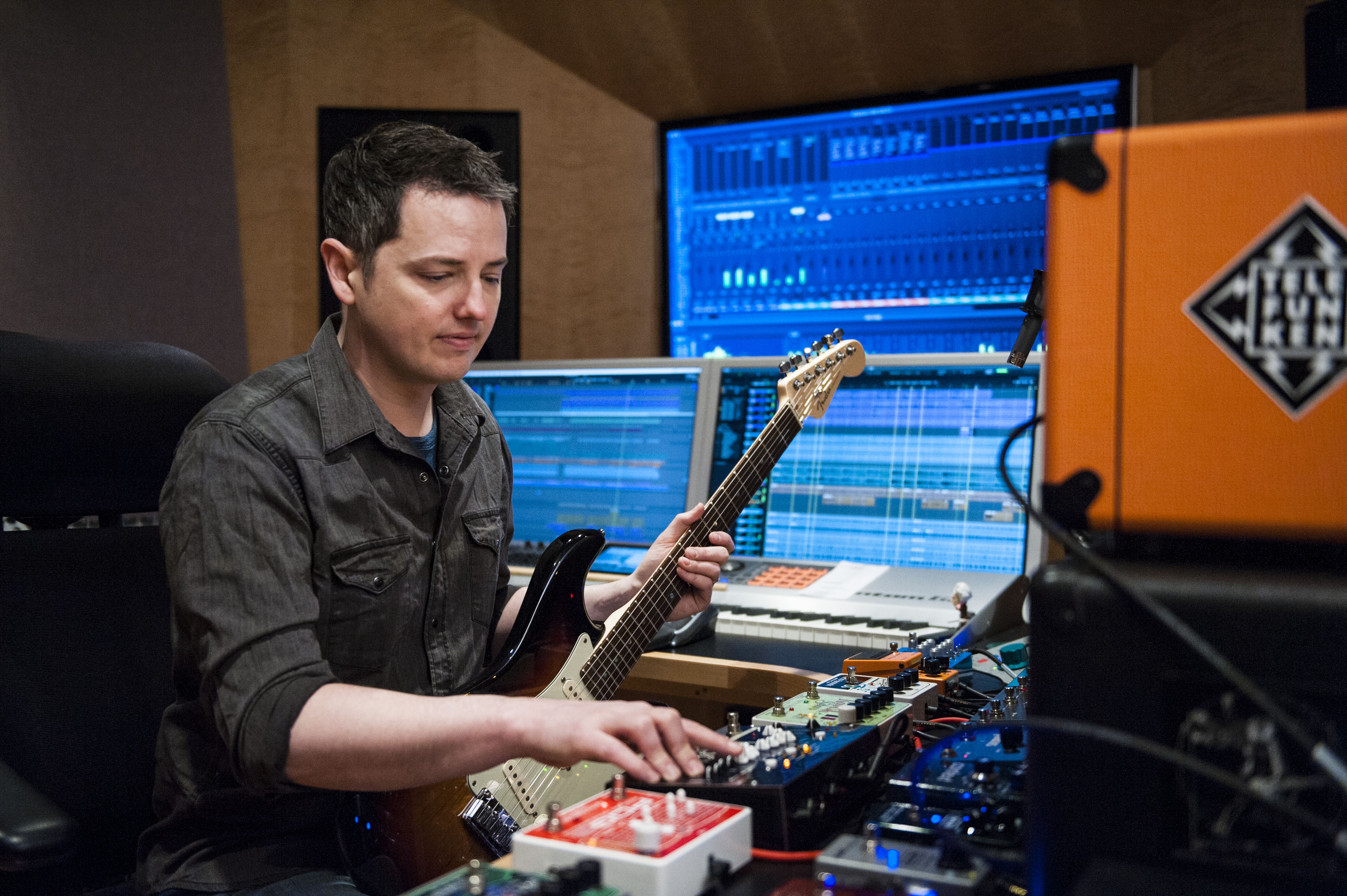
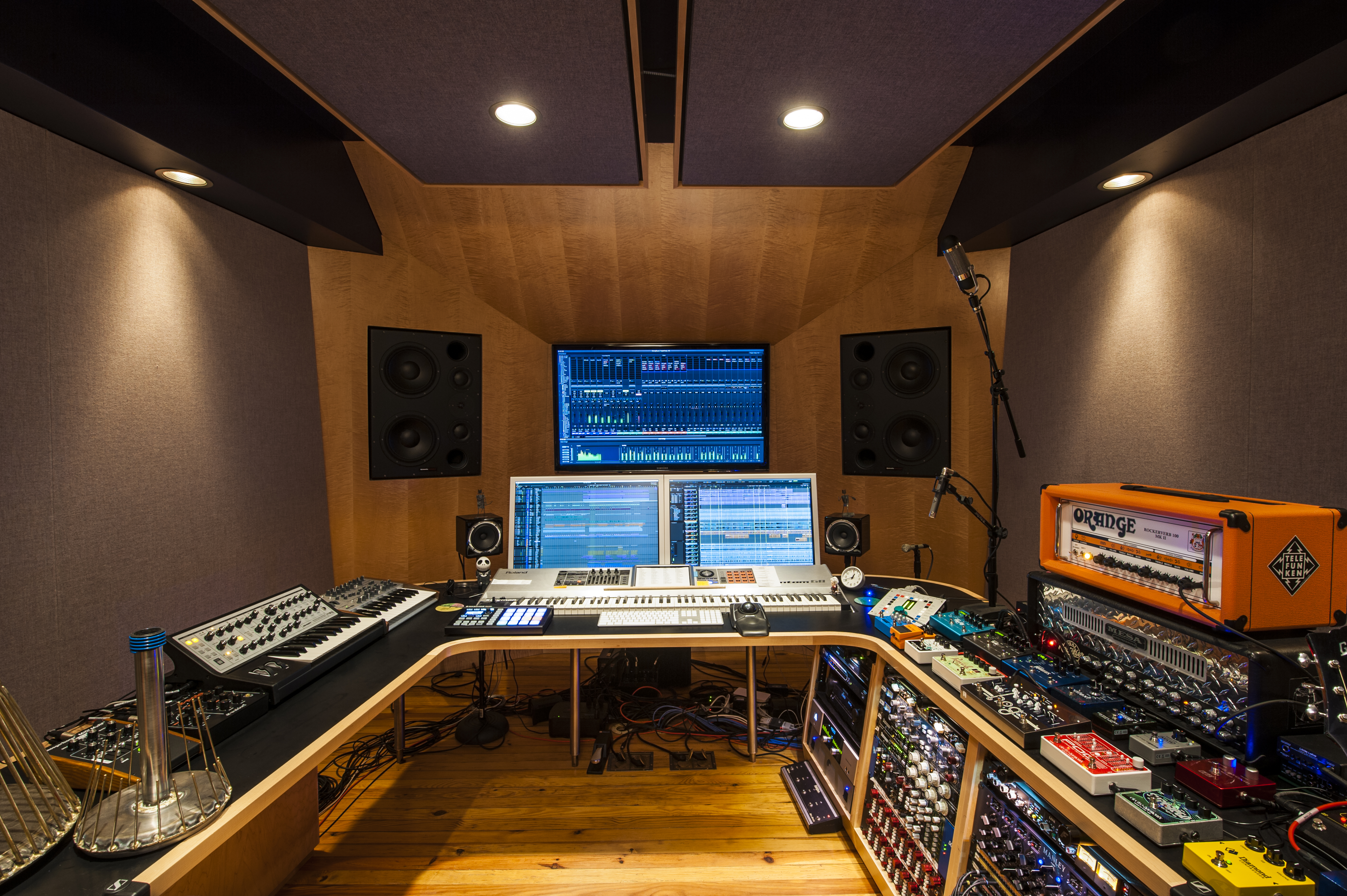
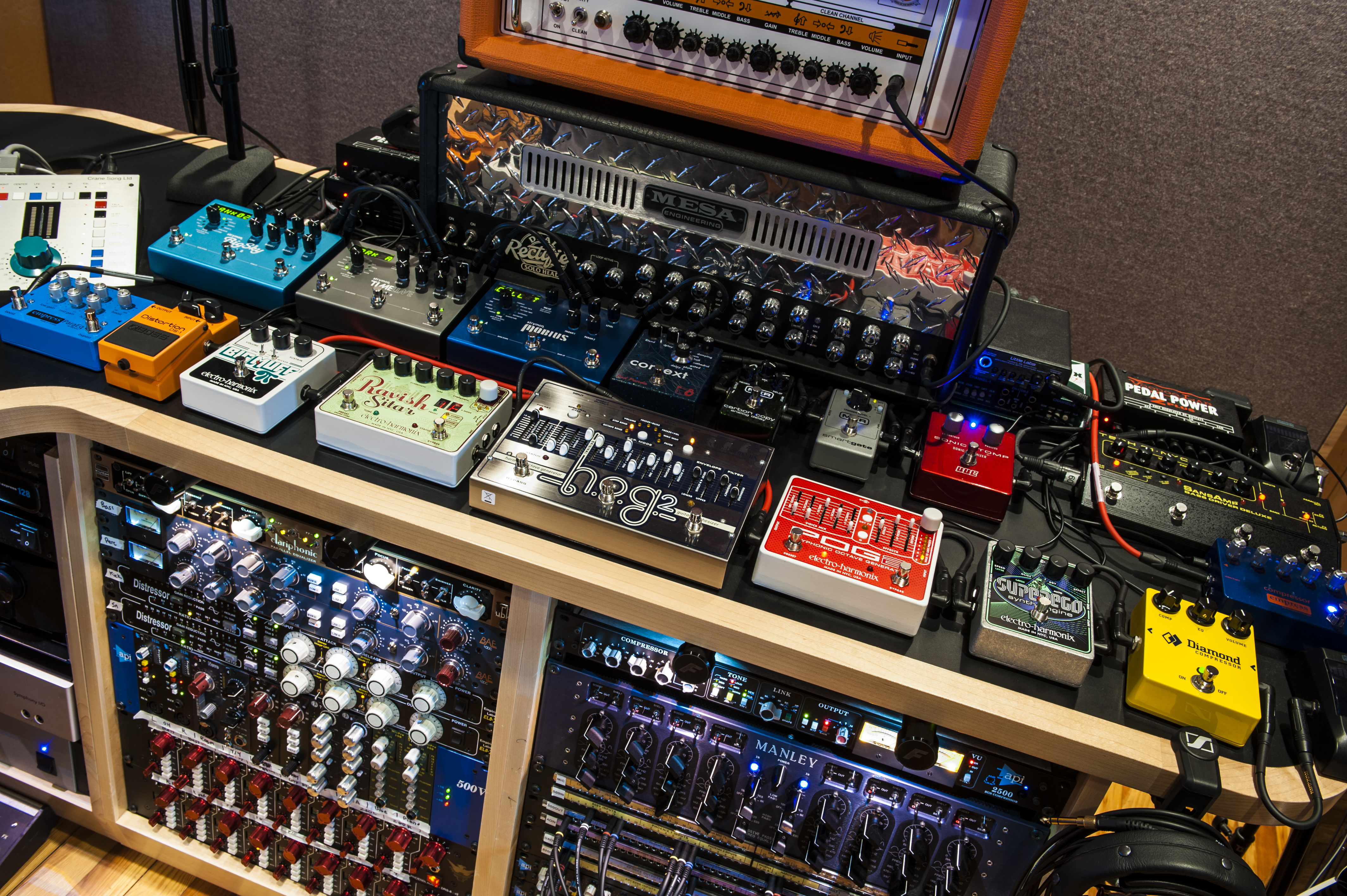
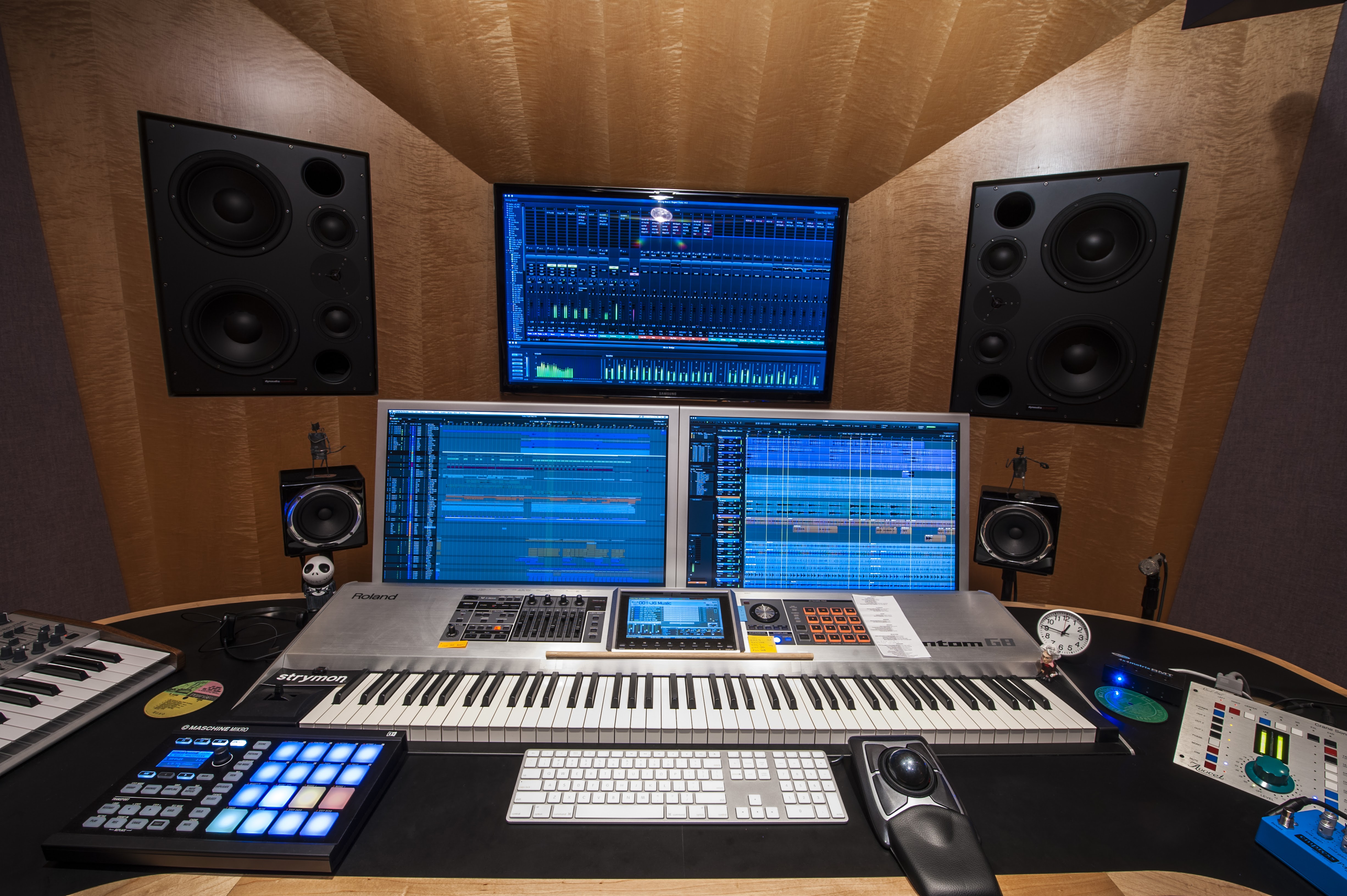
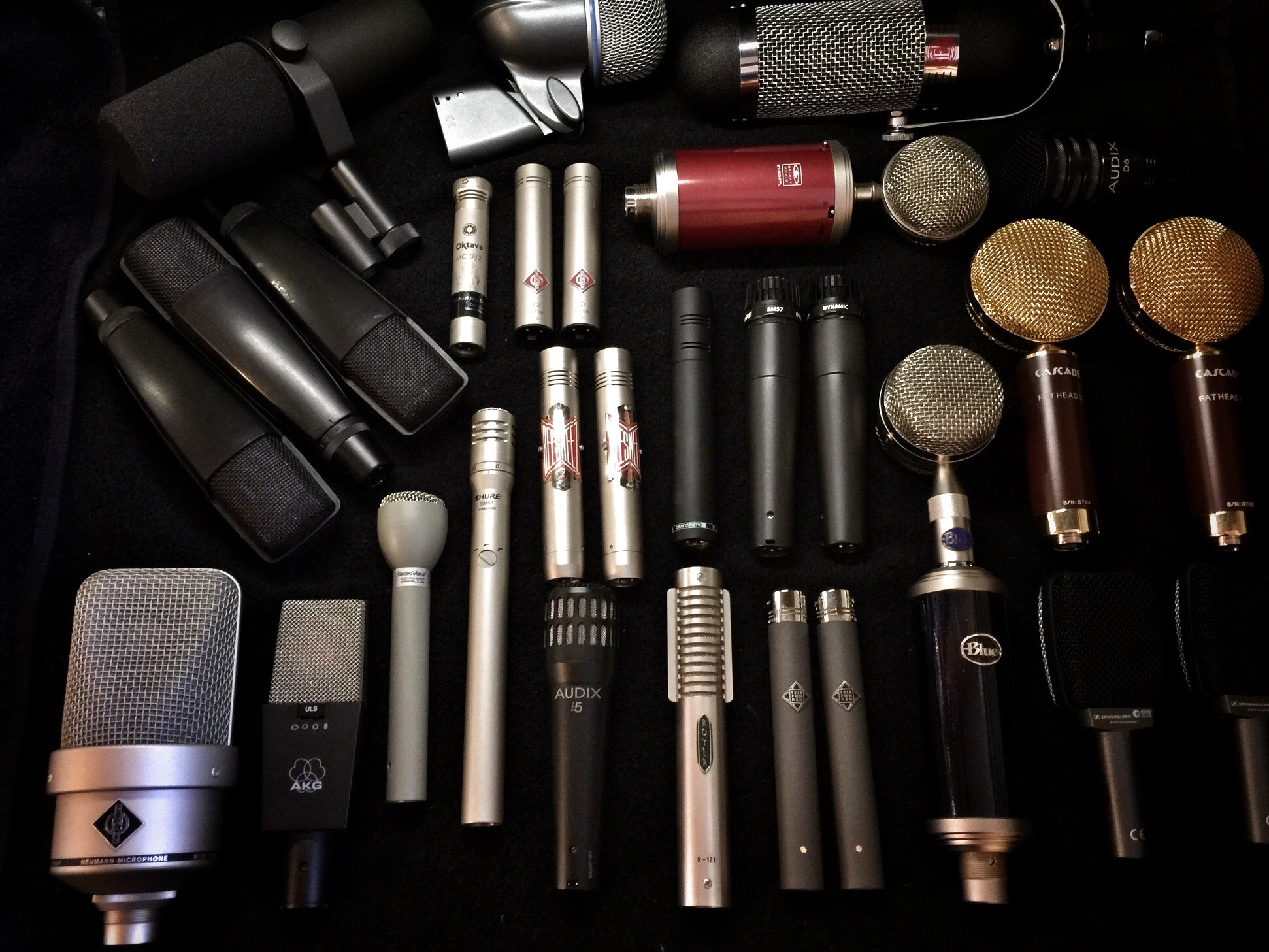
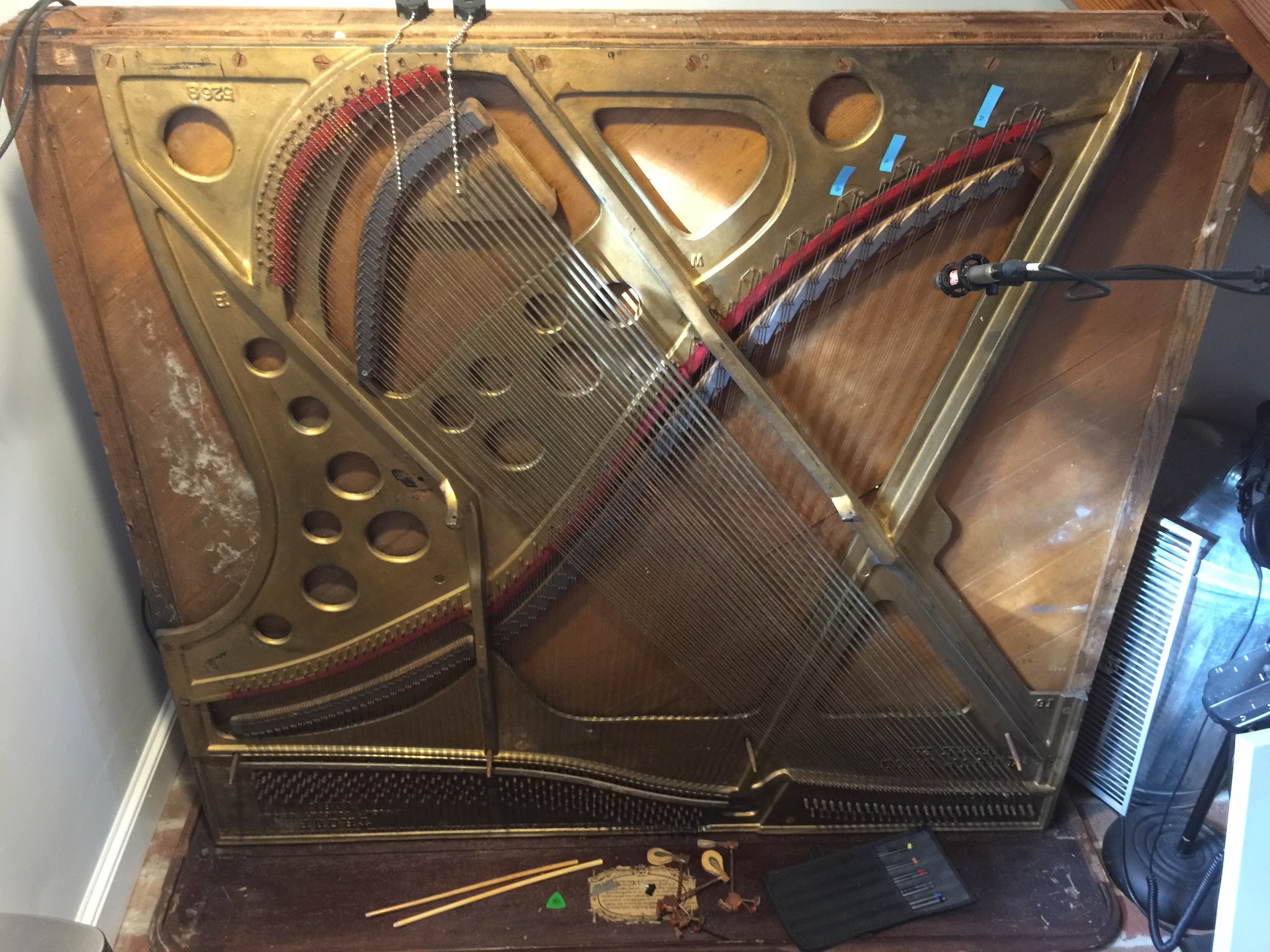
Jason Graves has had a 23-year career composing scores for television, film and games, including Tomb Raider, Far Cry Primal, Until Dawn, and The Order: 1886 among his more than 100 interactive titles to date. His score for Dead Space reinvented what game soundtracks can aspire to be. It won two British Academy of Film and Television Arts (BAFTA) awards for his score, and is often touted as one of the scariest games ever made.
He plays and records a diverse array of instruments, ranging from traditional to the obscure, all from his home studio.
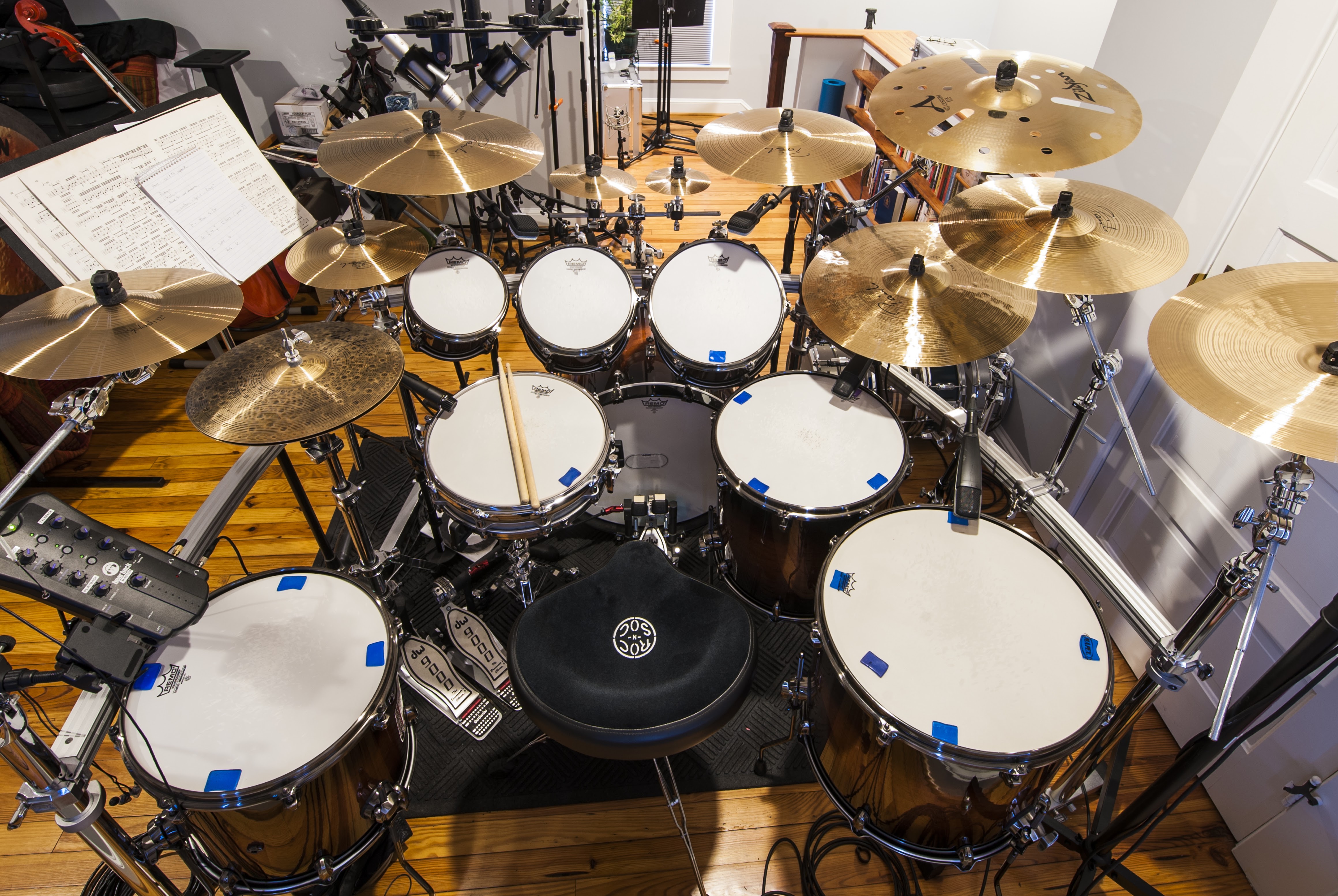
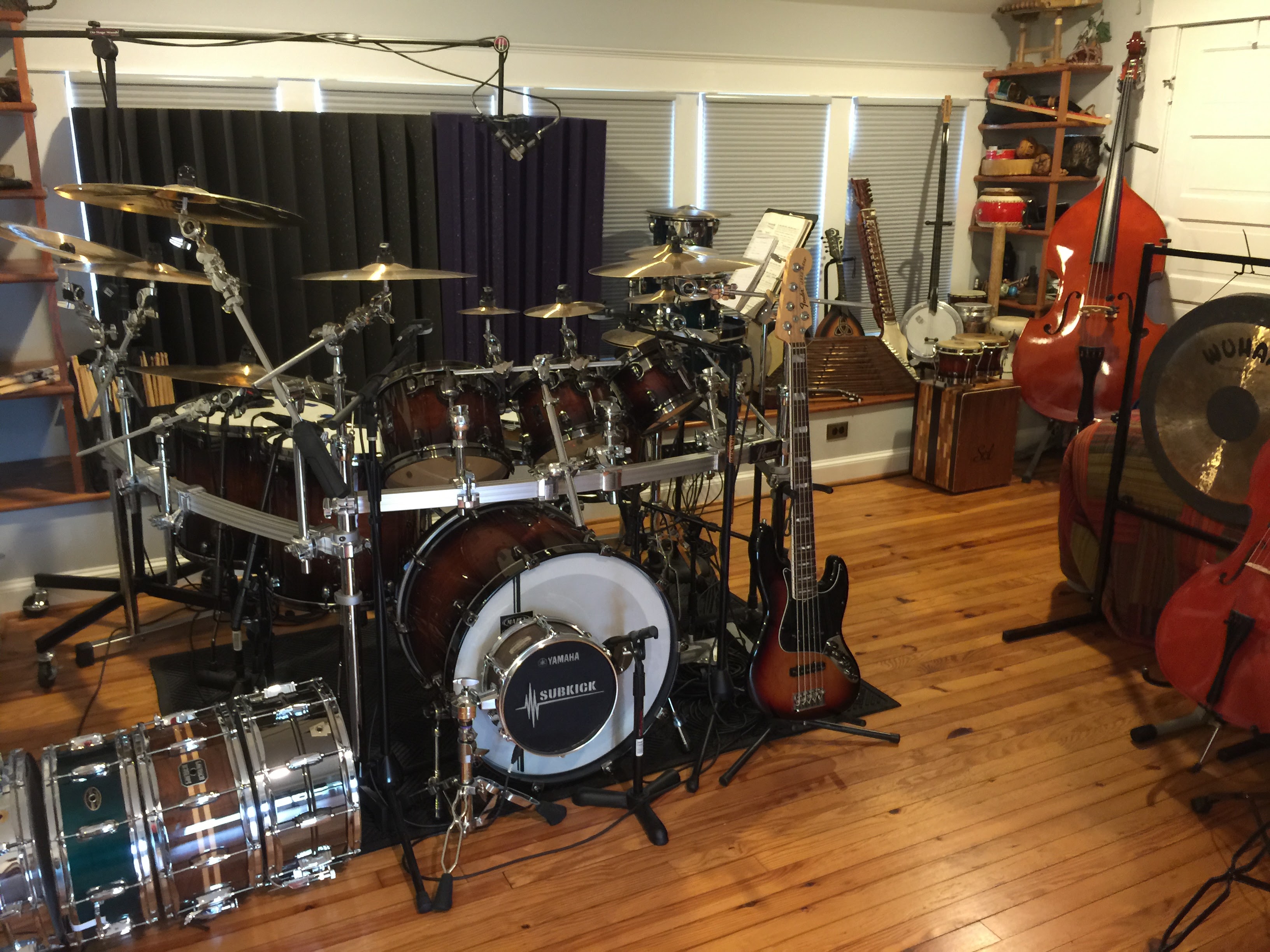
Tell me about your home studio.
It is completely separate from my living quarters. I can be up there banging on my drums and nobody can hear me. It was designed as a recording studio—I have different rooms with a variety of microphone and instruments set up, ready to record anytime.
Without this space I would need to book a studio, drive over there, make sure they have everything set up and spend a lot of time preparing for the recording. This way, I can record as I compose, in parallel, and it allows me to think creatively. If I want bongos, then out come the bongos—and live bongos are now part of the track. And the commute could not be better!
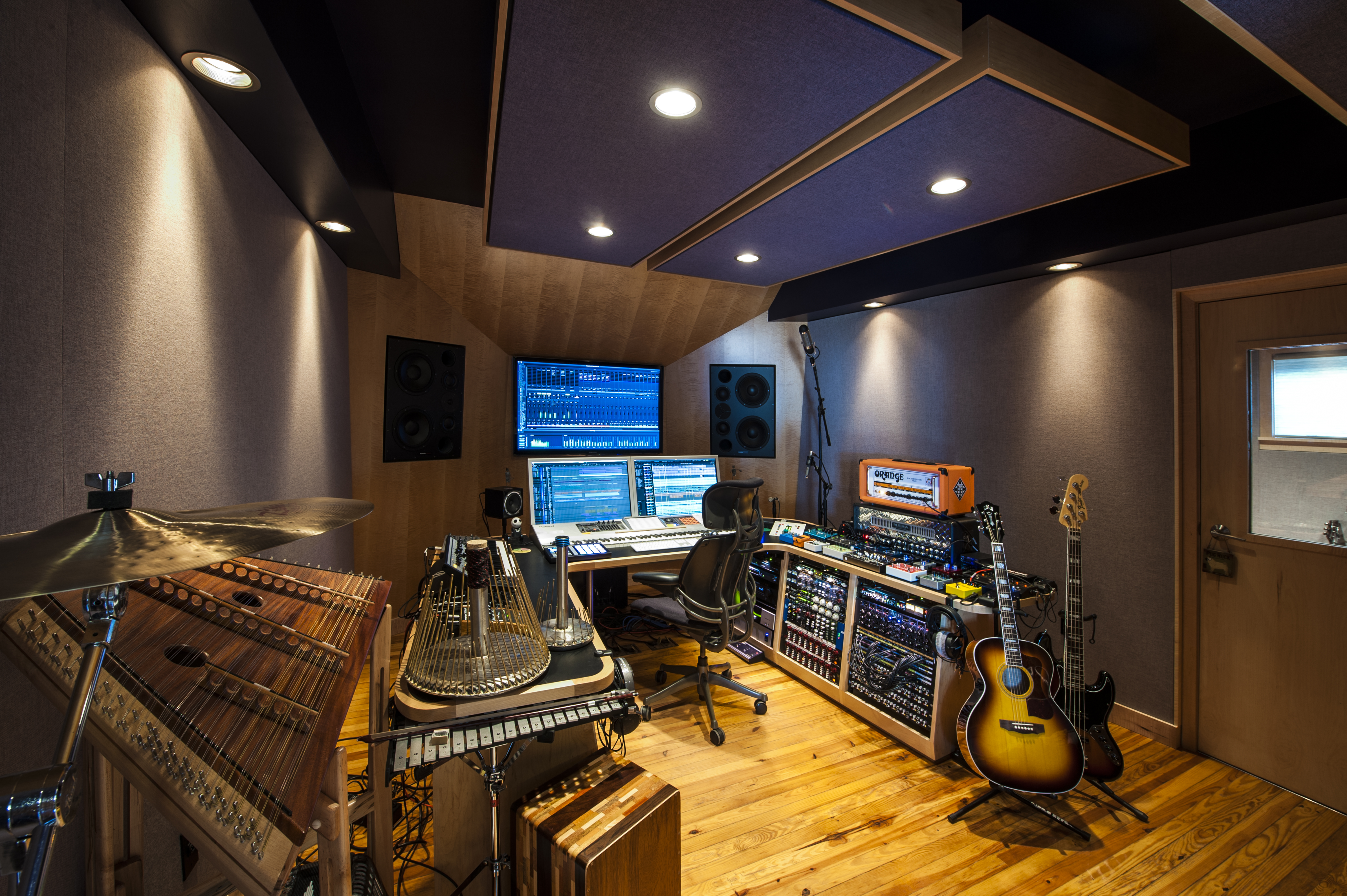
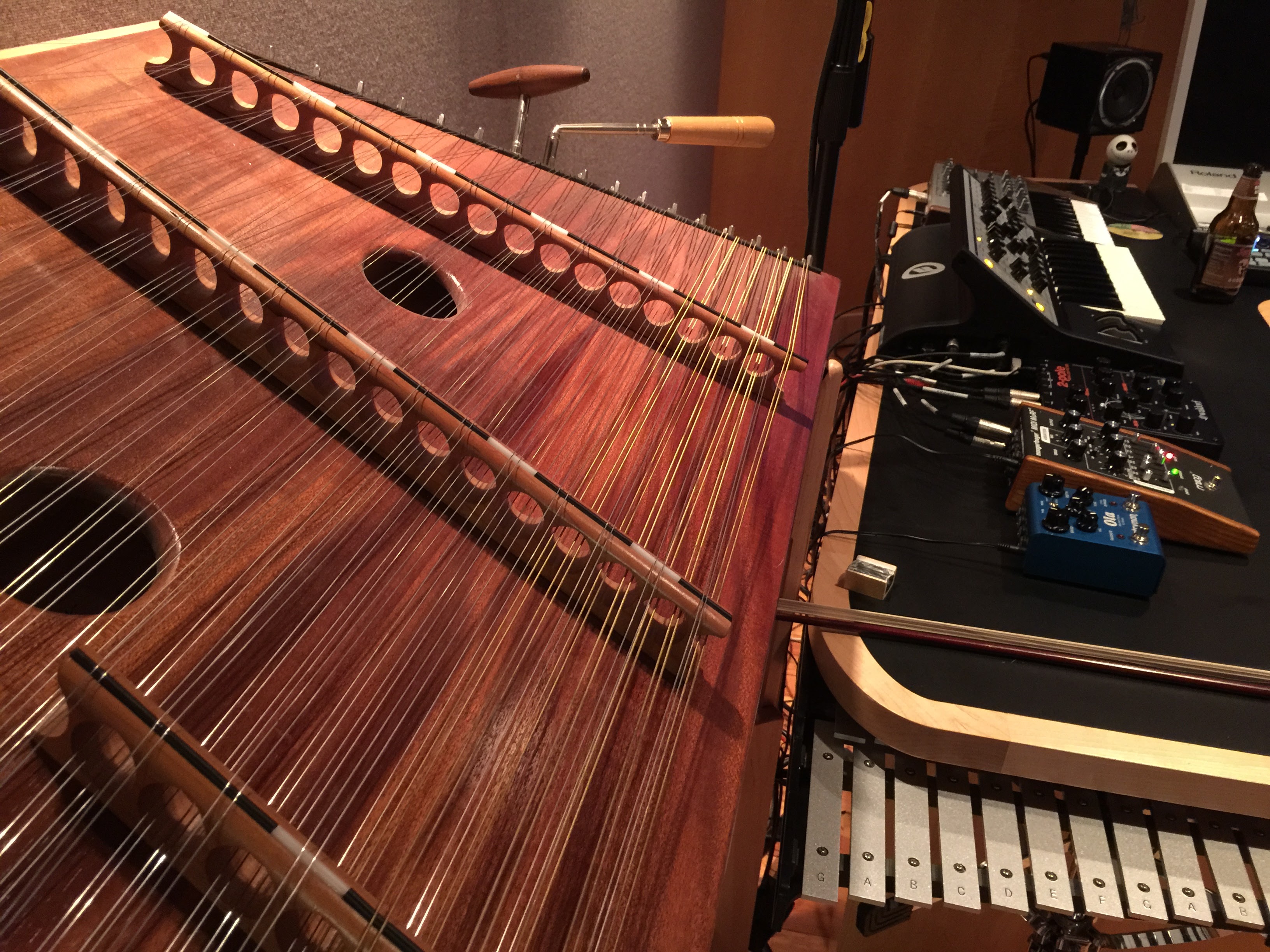
I see quite a few traditional instruments in your studio. With a lot of composing being done in-the-box using computer programs, how do you balance the use of live instruments and synthesized ones?
You can do a lot in-the-box now for sure, and in my experience it is definitely less expensive. If you're on a budget, you can do everything in your computer. However, it is sort of like people being computer-generated in a movie with other real people in the same scene. It is not quite realistic; there's always something a little bit off about it. I also love the musicality and uniqueness of live performances. I like to have as many live instruments recorded for my scores as possible.
I'm a drummer, but I can make noises on guitars, keyboards, and plenty of other exotic world instruments. So it comes naturally to me to compose the piece and perform and record live instruments for it as I go. Of course, if it’s an orchestral score, I will make a demo of the cue in the computer before recording it live, usually at Abbey Road or Ocean Way, Nashville.
The most recent game I worked on is called Moss. It’s almost all live musicians—there are only a few sampled strings. It was a smaller VR title and didn’t have a budget for a live orchestra. I played guitar, mandolin, Celtic harp, ukulele, hammered dulcimer, Native American flutes, and a surfeit of small percussion instruments on the score. Then I sent the parts I couldn't play, like solo woodwinds or solo violin, to friends of mine that record themselves from home as well. It's great way to work—it ended up being something like a 20-piece band and we were all working from home.
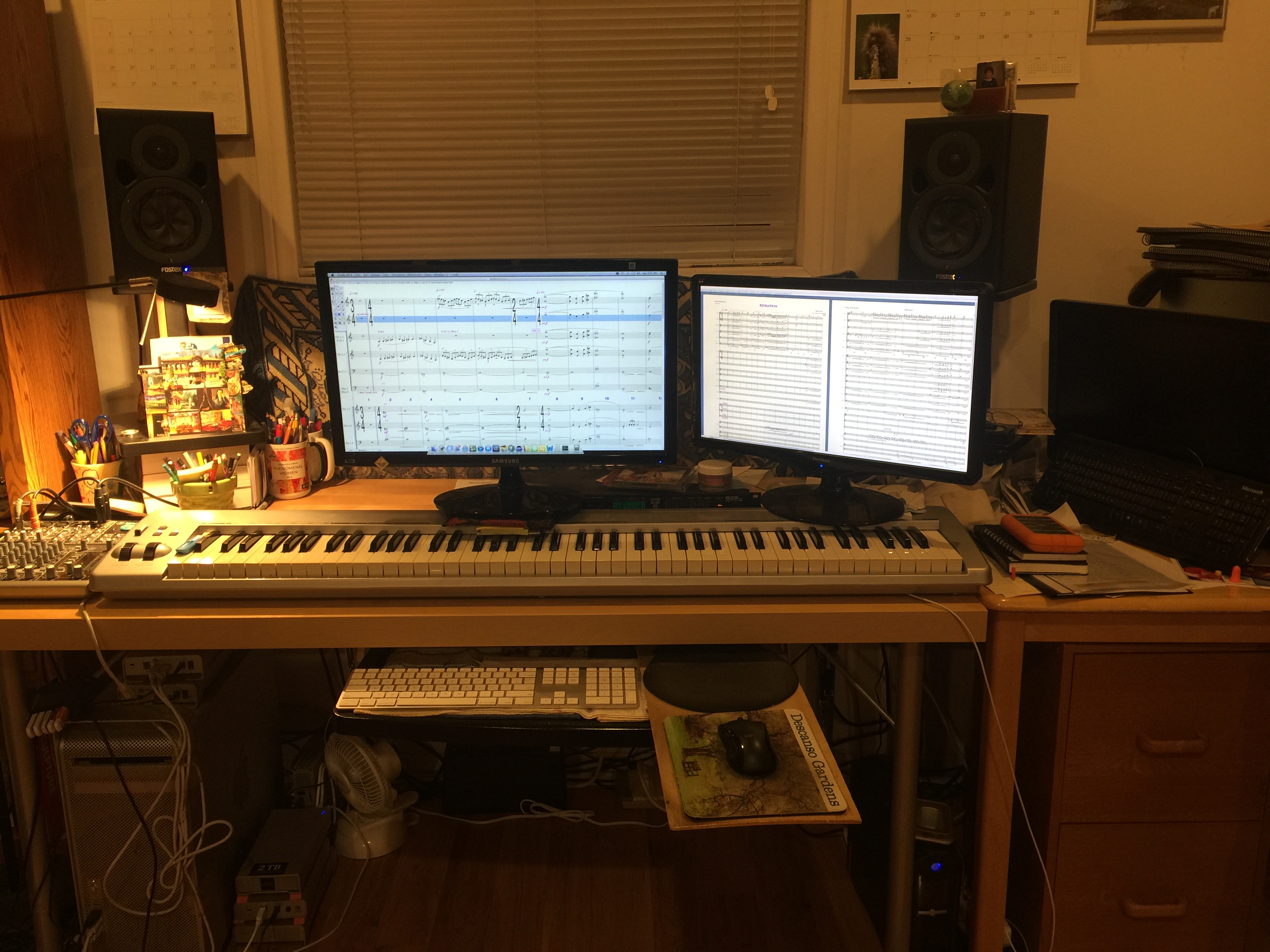
For the past 17 years, Penka Kouneva has primarily worked out of her home studio. Her credits include Prince of Persia: Forgotten Sands and League of Legends, The Mummy VR game, and a $30 million multimedia exhibit Heroes and Legends at the Kennedy Space Center. Last year she was commissioned by the Los Angeles Philharmonic for the concert America In Space at the Hollywood Bowl for an audience of 18,000.
When describing her studio, Kouneva says, "It is very modest. But I have a powerful brain," she said. "Usually I've had two power computers, one—my DAW (a Power Mac) and the second—a power PC as a host for the sample libraries. I also have two MacBook Pros as back-up computers. They have all the software that is on my main DAW. All my work is on external drives (always G drives)."
Describe your basic technique for composing.
I request concept art, gameplay, and key concepts. After having received these assets, I always sketch themes on paper. I compose in my head. The theme needs to "ferment" in my mind for a while until I fall in love with it and it's memorable for me. Usually I let some hours or days pass before I begin sequencing on the DAW in earnest. It's very important for me to have paper sketches, because I don't waste time on the DAW if my ideas are sketched already.
Once I open a blank template, I create a piano track, and from that point onwards I flesh out the composition, orchestrate it, and add synths, percussion, and embellishments last. My music is mostly thematic and hybrid orchestral. I am not a textural composer or electronics-based composer. I was classically trained and am mostly known as a "thematic" composer.
Do you have any go-to instruments or sounds that you work with primarily? Are you a multi-instrumentalist, or do you bring in soloists to perform your scores?
The choice of instruments is always determined by the characters, genre, and story. I do bring in soloists and instrumentalists. Often they record in their own homes and send me the tracks via WeTransfer. I give them specific instructions on what to do and much guidance and references. They always deliver great results because of the amount of guidance I've given them.
Composing from home, do you try to keep set hours for work, or do you get ideas in the middle of the night and head to the studio to capture it?
I am very regimented—I get up at 7 am, on the computer by 8:30 am, and spend time with the family in the afternoon and evening. I sleep regular hours and try to never wake up in the middle of the night. My focus, concentration, and ability to endure the long hours is a function of having had good sleep every night. I discourage my assistants from pulling all-nighters. It's very destructive for one's health. My brain is my biggest asset and the most important "part" of my studio.
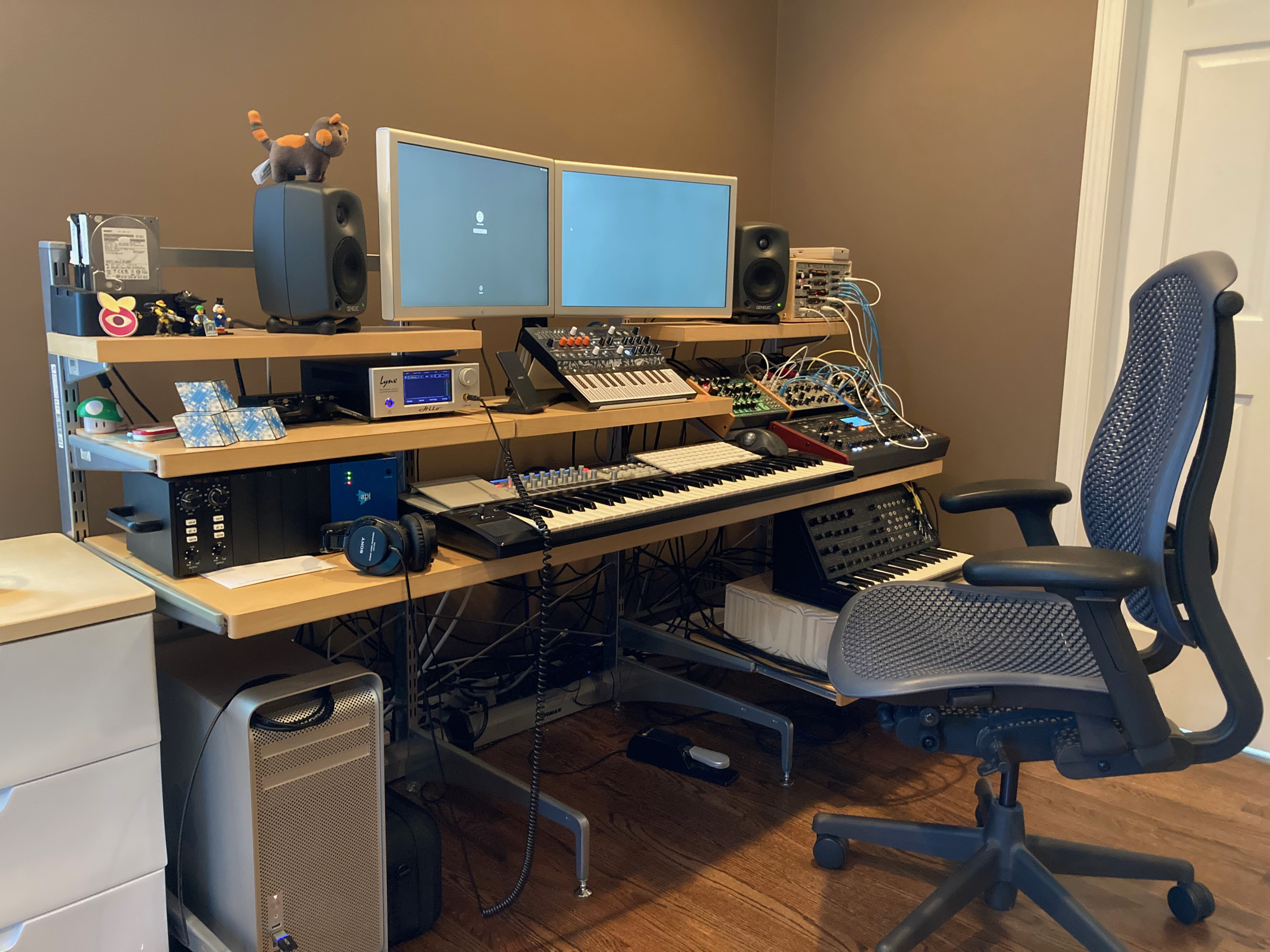
Joel Corelitz caught the break of a lifetime with his first foray into the AAA gaming industry when lead-composer Ludvig Forssell tapped him to be the sound designer for the much-anticipated Death Stranding, which was released in 2019.
Corelitz's use of unique sound-creations for indie games (like The Unfinished Swan and The Tomorrow Children) and commercial audio branding drew the attention of Forssell, and they conducted a three-day recording session in a warehouse utilizing metal grates, paint rollers, chains, bags of bolts, and one upright piano to make sounds that would be used for composing the game's dystopian sound.
They "prepared" the piano's strings by applying duct tape, playing cards, bolts, and screws (reminiscent of John Cage), then struck the keys with rubber mallets, beaters, and eventually a sledge hammer.
Tell us about the role and technique of being an "additional music composer" and musical sound designer for a game as big as Metal Gear.
In 2017, I was brought in initially to consult, which I think is a big part of what I do and what any game composer does. My role is to help figure out what the game sounds like and provide an exploration, and use my expertise to try to figure out a musical identity for a world that resides within the game.
My first conversations I had with Ludvig and [director Hideo Kojima], they were really high-level conversations of what this world should sound like, and what it shouldn't sound like. That led then to some really high-level explorations of some sample pieces we ended up composing, and that all led up and drove us towards the session where we sampled the piano [and other found objects from Home Depot].
Alongwith with collaborating with Forssell on the warehouse session, I read you were surprisingly invited to create 40 more minutes of additional music using those sounds. It is striking to me that you could complete such a big-league assignment from home.
"As much as I love gear... my space is intentionally restricted so that I can't have more stuff that I can fit on my desk."
As you can see my desk is relatively small and I kind of like it that way, it keeps me from letting gear start to define my creative process. As much as I love gear, and as much as we all do, that is something I'm really careful about—so my space is intentionally restricted so that I can't have more stuff that I can fit on my desk.
One of the things I like from working at home and the work-life balance afforded to this career, is the fact that you can have a simple setup that you stick anywhere that enables you to do your work anywhere.
How does this affect your work-life balance?
The work-life balance is something I'm always reckoning with, because the truth is when you're doing something you're passionate about as your career there really isn't any work-life balance.
I think having a setup that's accessible to you all the time enables you to kind of jump into an idea whenever you feel inspired. If this were off-site, I think I would have a much harder time getting things done, particularly when you have last minute revisions. Sometimes you have to knock things out quickly, and the best way to do that is with a setup right in your house that's right at your fingertips.

Video game developer Moon Studios is unique in the fact that they have no set location, with their creative departments spread around the world, putting games together in virtual settings. They tapped British composer Gareth Coker to create the soundtrack for 2015's Ori and the Blind Forest, and the game and the soundtrack garnered universal acclaim.
Coker's score for the sequel, Ori and the Will of the Wisps, was released last spring and garnered similar commercial success and critical acclaim. He is co-writing the score for the upcoming Halo Infinite with Curtis Schweitzer.
Coker's video monitor setup in his home studio is the only one of all the composers interviewed for this article that doesn't use the traditional left and right monitor setup on his work desk. He uses one 42" monitor to display various composing and recording programs above a 13" monitor to display gameplay.
Why the vertical video monitor setup?
With other multi-monitor setups, you're constantly moving from left to right, which is very bad ergonomically. All I have to do is move my eyes up or down to see everything that I possibly need.
Can you take us through your technique composing a score for a studio like Moon, where nearly all of your idea-development and work flow occurs virtually?
"Not only am I capturing the gameplay, I'm also capturing the sound effects... so I can work with them, or work around them."
The way I would write is I record a video of myself playing the gameplay, then bring it into my sequencer so I can play it and write to it. The cool thing about that is not only am I capturing the gameplay, I'm also capturing the sound effects, so I kind of have a rough idea of how busy things might get with the sound effects, and I can work with them, or work around them.
How do you work with soloists from home?
I sometimes record soloists at home but most of the time it's done remotely now, unless I really insist that person be in the studio or I want the benefit of a big room sound.
When I started doing this, not many musicians were doing remote recording and in the last three to four years a lot of the instrumentalists and singers will now have microphones more appropriate to their instrument in their home studios, and their home studio is set up in a way they know works best for them.
When you're composing those parts, do you start with the piano?
I usually sketch on piano, and then I look at the visuals and ask what does the space need? If I'm looking at a woody area, I know I'm going to be using tonal percussions and I know I'm going to be using a ton of reverb and probably add a woodwind instrument in there as well, which can sound kind of floaty and light.
I don't play any woodwind instruments, but one thing I'm very lucky to have is a very, very talented friend in Kristin Naigus—she plays about 300 instruments, she's a specialist on English horn and oboe, and owns several instruments from all around the world.
If I have an idea I want to try out, I'll just send her the melody and she'll try it out on a bunch of different instruments and send them to me, and she'll tell me which one she thinks is best. Then I'll listen to it and nine times out of 10 I'll agree, and then I'll put that in.
How new is it for you to work mainly from home?
I've always worked out of a home studio. I've never known what it's like to go to a different place except when recording with an orchestra or choir. My longest commute is usually 10 meters.
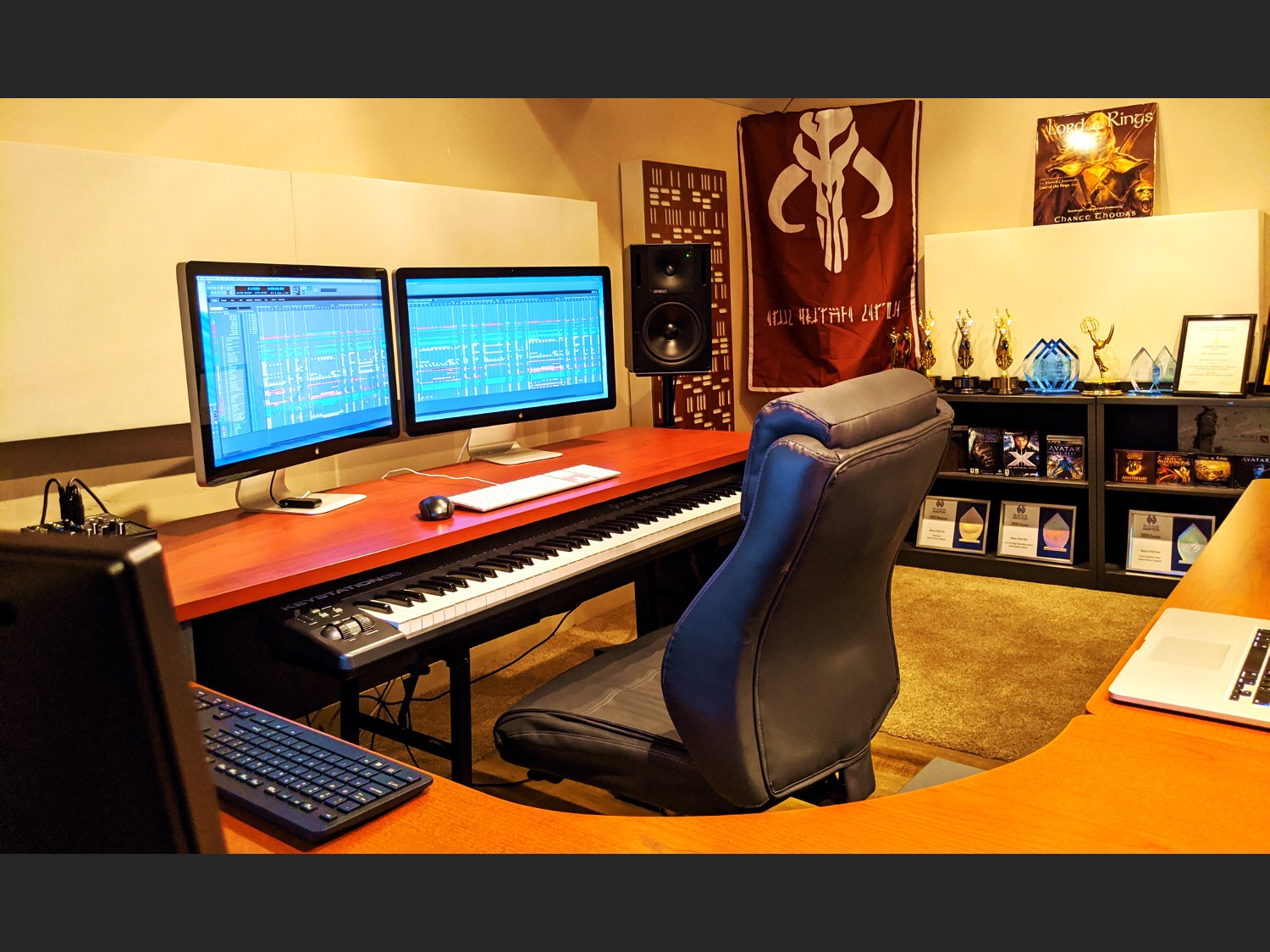
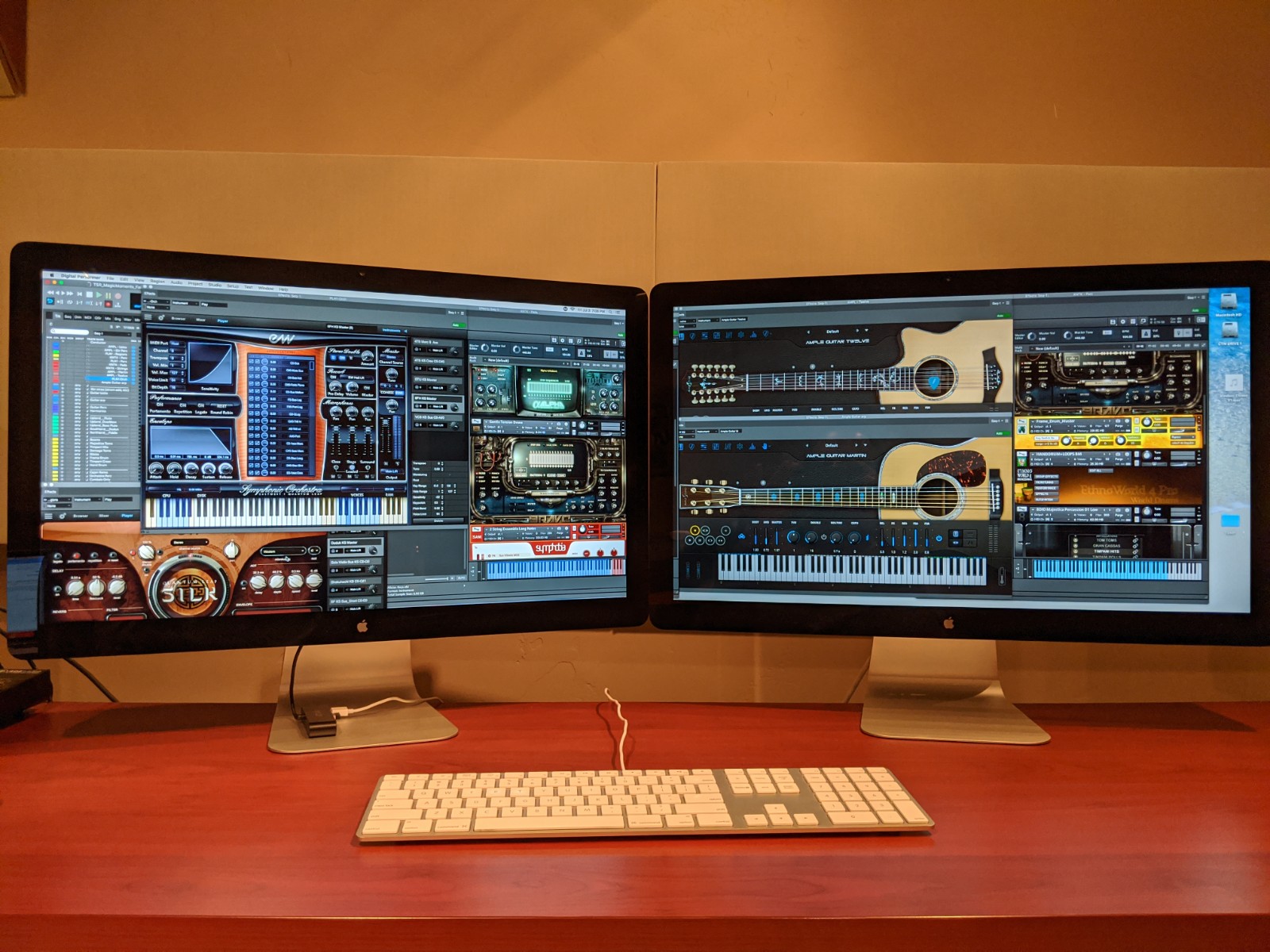
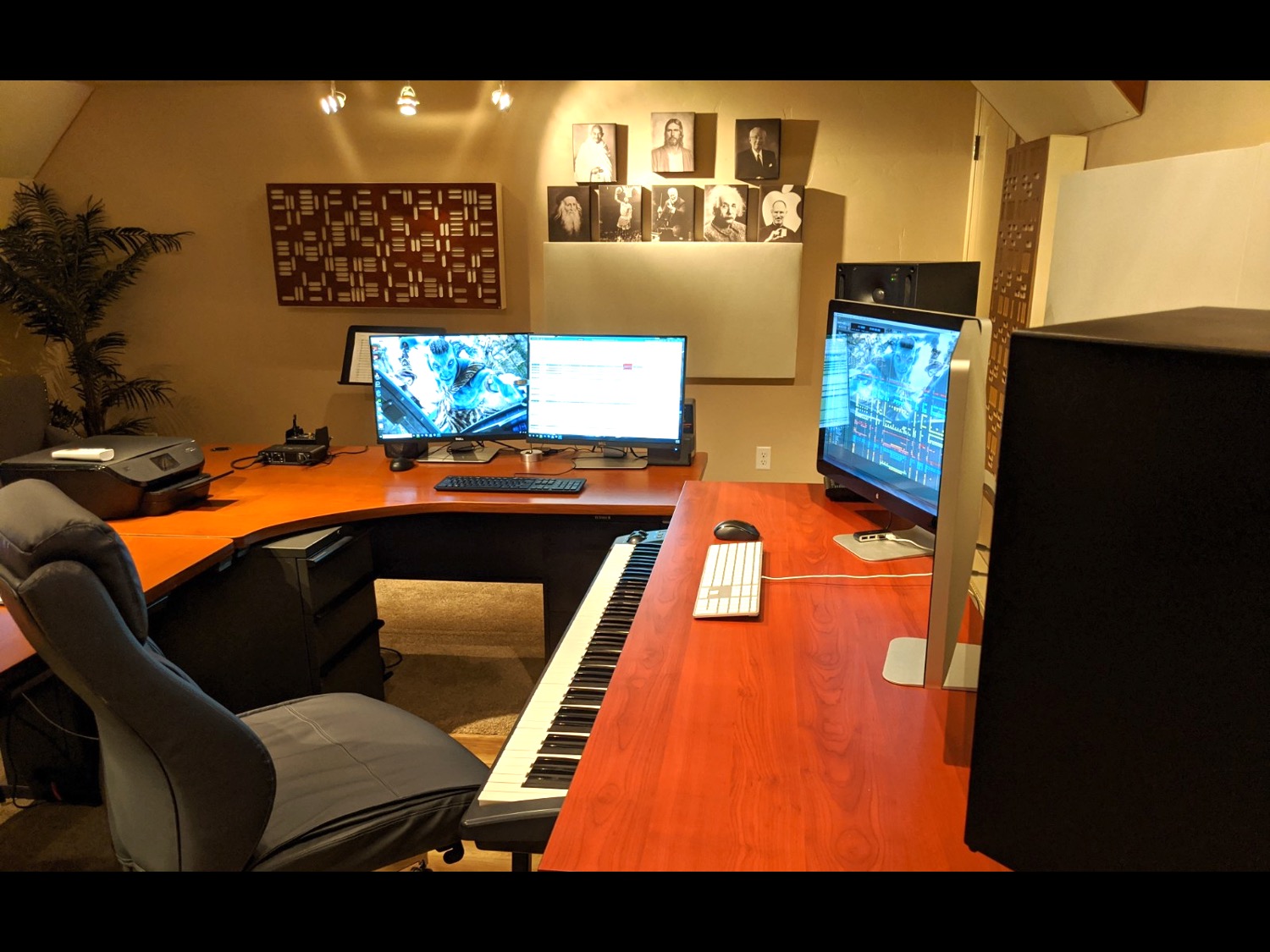
Chance Thomas has sustained a 20-year career scoring video games, virtual reality, film, and television—and wrote the university textbook Composing Music for Games: The Art, Technology and Business of Video Game Scoring. He helped the art of game composing gain respect in the music industry by leading a successful movement that brought the genre into the Grammy Awards.
His work with Peter Jackson on games based on Lord of the Rings is regarded as some of the most authentic and thorough in game composing. He recently moved from Los Angeles to Utah and built a state-of-the-art studio in his home.
You dedicate a whole chapter in your book to lifestyle management during the creative process, allowing a composer to lead a long and fruitful career. Artists of all mediums are known for holing up in their studios for days on end when working on a project. How have you balanced home life and composing when your studio is in your home?
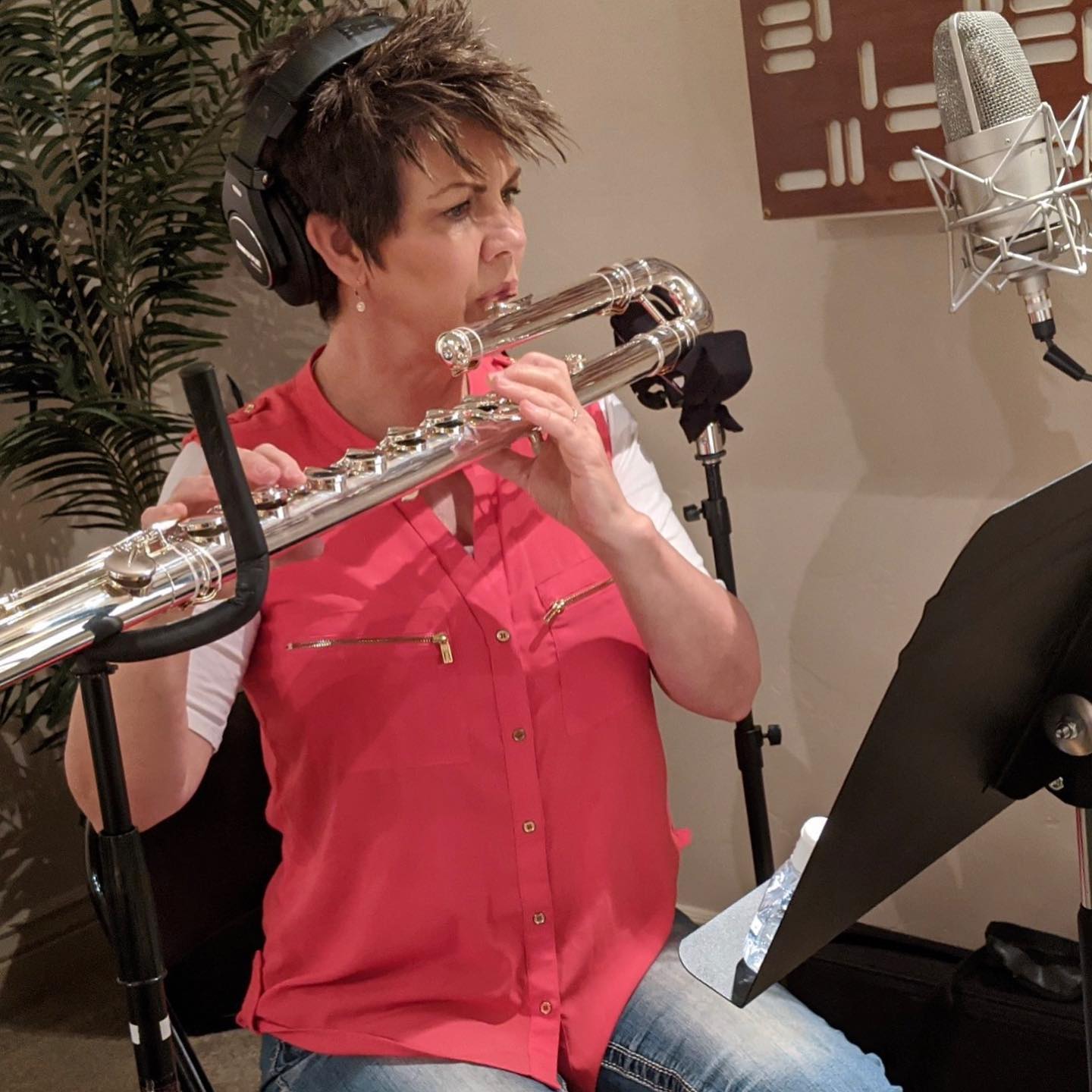
We can and we do hole up in our studios, but here's the thing: I can go around the clock. I can burn the candle at both ends for days and weeks and months on end for awhile, but then I'm going to burn up or blow or something that's going to take me out of my career after just a few years. Or maybe take me out of my family.
I've found that you have to find the right blend of flexibility, because sometimes clients demands are very real and very pressing but you also have to carve out sacred spaces, time and place for just you to recharge, time and place for you and those who are closest with you, your significant other, children if you have them, and I also think you have to take some time for community and social involvement.
Who is pictured in the art by your monitors?
My heroes: I've got Jesus, Gandhi, Leonardo Da Vinci, Michael Jordan, John Williams, Einstein, Gordon V Hickley, Steve Jobs.
I see those guys, they're looking over my shoulder while I'm working, and if I get lazy I think of Steve Jobs and what a relentless perfectionist he was, or if I encounter a challenge I think of Michael Jordan and how he just went through or over or under or around everything.
Each one of those guys represents a certain kind of motivator for me. If people ever try to pigeonhole me I look at Leonardo Da Vinci and I'm like, No, I can do lots of different things well. Each of those faces on that wall have a particular motivational quality.
